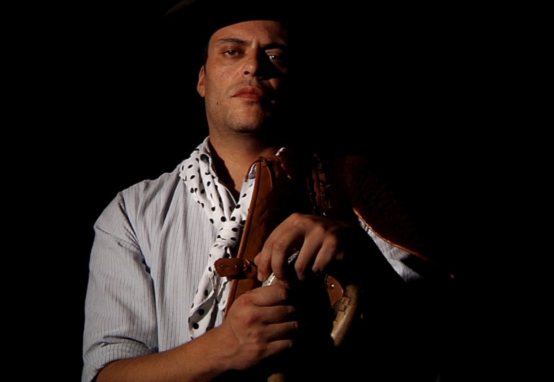
Director/Writer: Sérgio Tréfaut
Portugal Documentary 97min
São Paulo-born documentarian Sérgio Tréfaut’s latest feature-length work is an impressive foray into a particular region of Portugal by way of its singing traditions. Heartfelt and moving, the film was unveiled at the 11th edition of IndieLisboa last week, where it won Best Portuguese Film.
Cante alentejano is a traditional, polyphonic form of singing that emerged in Alentejo, an open, agricultural region in south-central Portugal known for, among other things, its cork-growing and bread-making. Cante is historically rooted in the region’s labour traditions, whereby field workers and miners would sing collectively, without musical accompaniment, about their daily experiences. Tréfaut eschews voice-over and on-screen text, as if to suggest the film’s story tells itself. Featuring 26 songs in all, and moving seamlessly between generations, genders, interviewees and the region’s various industries, ALENTEJO, ALENTEJO is an evocative and original portrait of enduring geo-specific customs.
Typically consisting of 20 to 30 males, Cante choirs demonstrate a togetherness and harmony that is deeply rooted in the region’s working practices. “Cante began in the Alentejo region with agriculture,” says one interviewee. “There’s a different rhythm now,” chimes another. “Back then nobody had horses – we were always on foot.” Though the songs relate to working patterns, they also incorporate leisure times. Huddled together in a local tavern, one group of men sings, “By the sound of the guitar / I know what time it is / It’s past midnight / I’ve had a good evening!”
Drawing upon a shared, intergenerational experience and surviving so long thanks to a comparatively unchanging landscape, the songs are overwhelmingly melancholic – and have relevance to a crisis-ridden Portugal today: “This is our Portugal / Some people go hungry / This is our Portugal / We don’t know what to do / So many people living in misery / They can’t afford to eat / They have no place to work / And companies are closing down.” Such mourning would not be out of place in the busier centres of Lisbon.
Others are romantic in tone. “I went to sow the green parsley / Outside in the olive groves / To see if I could forget you / But I remember you more and more.” The simple lyricism of these lines conjures a daily toil that magnifies human sensitivity at the same time as it prohibits the fulfilment of desire. Many of the lyrics sung in the film concern insatiable yearning. Sung with such gusto, they are deeply moving. Even when younger males sing, they do so with passion; one lad notes that he’s a better singer when he feels the content of the lyrics.
Editorially faultless, the film includes footage of school children, eagerly answering their teacher’s questions regarding the large size of their families and how many of their relatives live abroad. (Teacher: “Because there’s no work here.”) Indeed, much of the school curriculum, we infer, revolves around local history and labour: kids draw their dads in the mines and decode Cante songs. The cultural significance of the genre is clear – and its cinematic merits are undeniable. Michael Pattison
SCREENED AT THE 11th INDIELISBOA FILM FESTIVAL, LISBON, PORTUGAL from April 24 until May 4, 2014